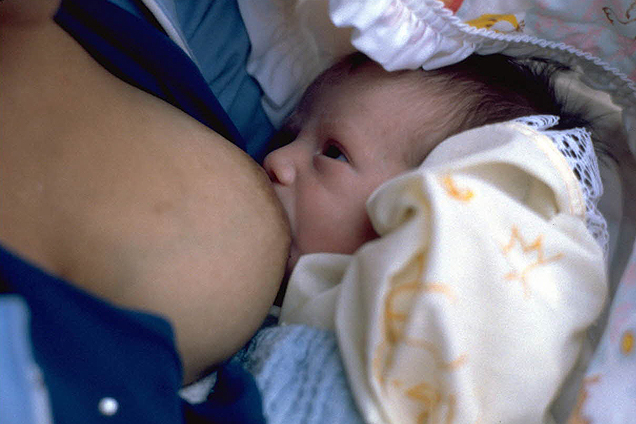UNICEF says more family-friendly policies are critical to increasing breastfeeding rates worldwide.
It comes as World Breastfeeding Week is marked from August 1st.
Figures show only four out of 10 babies were exclusively breastfed in the first six months of life last year.
In comparison, these rates were more than half - 50.8% - in the least developed countries.
The highest rates were found in Rwanda (86.9%), Burundi (82.3%), Sri Lanka (82%), Solomon Islands (76.2%) and Vanuatu (72.6%).
Research also shows that infants in rural areas have higher levels of exclusive breastfeeding than urban babies.
According to 2015 figures, 58% of babies in the Republic of Ireland were receiving any breastmilk on being discharged from hospital.
The Health Service Executive (HSE) recorded that 35% of babies were receiving some breastmilk at three months.
UNICEF says upper-middle-income countries have the lowest breastfeeding rates - exclusive breastfeeding rates were the lowest at 23.9%, having decreased from 28.7% in 2012.
While research suggests breastfeeding at work works.
"Regular lactation breaks during working hours to accommodate breastfeeding or the expression of breastmilk, and a supportive breastfeeding environment including adequate facilities enable mothers to continue exclusive breastfeeding for six months, followed by age-appropriate complementary breastfeeding", UNICEF says.
 File photo of a child being breastfed | Image: WHO/C Gaggero
File photo of a child being breastfed | Image: WHO/C GaggeroBut it says working women do not get enough support to continue breastfeeding.
Worldwide, only 40% of women with newborns have even the most basic maternity benefits at their workplace.
This widens among countries in Africa, where only 15% of women with newborns have any benefits at all to support the continuation of breastfeeding.
While too few countries provide paid parental leave.
The International Labour Organisation (ILO) Maternity Protection Convention 2000 standards include at least 14 weeks of paid maternity leave.
Countries are recommended to provide at least 18 weeks, as well as workplace support for breastfeeding families.
But UNICEF says only 12% of countries worldwide provide adequate paid maternity leave.
"Availability of longer maternity leave means higher chances of breastfeeding", it says.
UNICEF says increasing breastfeeding could prevent 823,000 annual deaths in children under five, and 20,000 annual deaths from breast cancer.
UNICEF executive director Henrietta Fore says: "The health, social and economic benefits of breastfeeding - for mother and child - are well-established and accepted throughout the world.
"Yet, nearly 60% of the world's infants are missing out on the recommended six months of exclusive breastfeeding.
"In spite of the benefits of breastfeeding, workplaces worldwide are denying mothers much needed support.
"We need to far greater investment in paid parental leave and breastfeeding support across all workplaces to increase breastfeeding rates globally."
UNICEF adds that if optimal breastfeeding is achieved, there would be an estimated reduction in global healthcare costs of US$300bn (€271.7bn).









